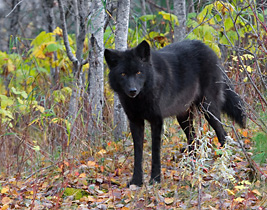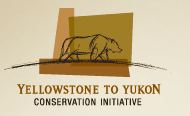Time for Wildlife Agencies to Protect Animals, Not Kill Them
In January, the Idaho Department of Fish and Game sent a helicopter into the Frank Church River of No Return Wilderness to radio-collar wolves. This incursion violated the rules of the federally protected wilderness area. It also broke the department’s own agreement with the federal government, dating from a prior violation in which Fish and Game sent a trapper into the protected area to exterminate wolves. By the time conservationists filed suit in that 2013 incident, nine wolves in two packs were already dead.
But let’s not pick on Idaho. What happened there fit seamlessly with the entire long history of wildlife agencies manipulating the environment for the benefit of hunters. In truth, that kind of game management dates back at least to Charlemagne and Genghis Khan, and it persists today in the names and the mind-set of the many wildlife agencies that still call themselves fish and game departments.
Predator control tends to get the headlines. But these agencies also engage in large-scale alterations of the landscape—by clearing forests, conducting prescribed burns, building water catchments, removing shrubs from wetlands, and other means—to benefit game animals, with little or no regard for how this will affect all the other non-game species living in that habitat. And the habitat in question is huge. In Scotland, for instance, 58 percent of the total land area is managed for hunting, mostly upland birds. In Slovenia, it’s 94 percent of the total land area.
The widespread character of this land management caught the attention of Travis Gallo, a doctoral candidate in conservation biology at Colorado State University. He was also interested in how much money goes into game management, especially compared to what other nongame species get. Hunting licenses in the United States contributed $790 million to wildlife programs in 2013, and special duties and taxes on hunting gear, via the Wildlife Restoration Act, added another $550 million.
Gallo’s original idea was that, even if this funding results in a one-sided focus on game animals, there might be inadvertent benefits for nongame wildlife too. Like a lot of people in Colorado, he’s a hunter himself, for deer and elk, and “I really wanted to find some synergy,” he said. What he found instead, he reports in a new study in the journal Biological Conservation, is that hardly anybody even bothers to ask the question.
A broad search of the scientific literature revealed just 26 studies “that directly evaluated the effect of game management practices on non-targeted wildlife.” The effect was positive 40 percent of the time and negative 37 percent of the time, more or less what you would expect by chance.
On the positive side, for example, wildlife agencies removed shrubs from wetlands in the Great Lakes to create habitat for sharp-tailed grouse, a game bird. But that inadvertently also benefited birds like LeConte’s sparrow and the sage wren, which also require open wetland habitat. Water catchments in Arizona turned out to benefit native bats more than the mule deer and other game species for which they were intended. On the negative side, the United Kingdom manages habitat for fallow deer, roe deer, and the Reeves’s muntjac (a deer species native to China), and this inadvertently causes sharp declines in native British birds such as the common nightingale, the willow warbler, and the chiffchaff. Managing for overabundant elk at the National Elk Refuge in Wyoming nibbles down cover that would otherwise harbor migratory shorebirds and songbirds.
In the new study, Gallo and his coauthor, Liba Pejchar, note up front that they aren’t “advocating that hunting be reduced or prohibited on either public or private lands.” They rightly note that a lot of habitat and species now survive only because of hunters. In the United States, big game hunters launched the conservation movement in the late 19th century, just in time to save the bison from extinction. They drove through the passage of the Lacey Act, which remains our fundamental law against illegal wildlife and plant trafficking. They played a major role in creating some of our most important national parks.
But that doesn’t mean the hook-and-bullet mentality should be ruling our wildlife agencies today, if only as a matter of their own self-preservation. The number of people identifying themselves as hunters (and paying those license fees) is sharply declining, down to just 13.7 million in 2012. But in the same survey, 71.8 million Americans said they were wildlife watchers. One way to get wildlife agencies to broaden their focus to nongame animals would be for those wildlife watchers to begin to take over the funding. That is, you and I should be stepping up to pay a special wildlife tax on our binoculars and our birdfeeders, the way hunters do on their guns. That was the gist of the Teaming With Wildlife Act of 2009, but it went nowhere in Congress.
The other important take-home message from the new study, said Gallo, is that wildlife agencies need to do real science on how game management impacts nongame species. In particular, they need to investigate the likely compounding effect when they combine outdated predator control programs with unscientific habitat manipulations.
That is, wildlife agencies need to grow up, stop distorting the landscape for the recreational interests of one narrow interest group, and start practicing holistic management for the benefit of entire ecosystems.
http://news.yahoo.com/time-wildlife-agencies-protect-animals-not-kill-them-165133283.html
“Time for Wildlife Agencies to Protect Animals, Not Kill Them”
===
Please sign and share!
Keep Wolves Protected, and Defend the Endangered Species Act
===
Posted in: Gray wolf, Wolf Wars Animal Cruelty
Top Photo: Gray wolf Pinterest
Bottom Photo: Takepartdotcom
Tags: Wildlife agencies, killing not saving, hunters, wildlife watchers, wolves, IDFG, animal cruelty









 Boulder White Clouds Council
Boulder White Clouds Council Exposing The Big Game
Exposing The Big Game Footloose Montana
Footloose Montana Friends of the Clearwater
Friends of the Clearwater Lockwood Animal Rescue Center
Lockwood Animal Rescue Center Louise du Toit
Louise du Toit LUPUSLAETUS
LUPUSLAETUS Mercy For Animals
Mercy For Animals Northern Idaho Wolf Alliance (NIWA)
Northern Idaho Wolf Alliance (NIWA) Predator Friendly®- Because Wildlife Matters
Predator Friendly®- Because Wildlife Matters Project Coyote
Project Coyote Project: Wolf
Project: Wolf The Nature Conservancy
The Nature Conservancy The Ravensong Group
The Ravensong Group WildEarth Guardians
WildEarth Guardians Wisconsin Wildlife Ethic-Vote Our Wildlife
Wisconsin Wildlife Ethic-Vote Our Wildlife Wolf And Wildlife Studies: Jay Mallonee (Independent Wolf Biologist)
Wolf And Wildlife Studies: Jay Mallonee (Independent Wolf Biologist) Wolf Song of Alaska
Wolf Song of Alaska Wolves in english ! Les loups en anglais !
Wolves in english ! Les loups en anglais ! WWP's Gray Wolf Page
WWP's Gray Wolf Page Yellowstone To Yukon Conservation Initiative
Yellowstone To Yukon Conservation Initiative
The US Fish and Wildlife Service has to be abolished! They are responsible for seeing which species are protected. That is like the Fox guarding the Hen House. They kill more things than any other Agency or Service. They are RANCID. That is my tagline for them.
LikeLike
Welcome back, Nabeki! What a beautiful picture of a wolf.
I’m tired of hearing how hunters ‘save’ wildlife – all it really means is that hunting is the lesser of two evils. If wildlands weren’t put aside for hunting, then they’d just get developed either for extraction industries or homes and leisure activities for human multitudes.
Wildlife Services’ activities have enjoyed being hidden from the public for a long time because of the protection from special interests – but once the public becomes aware of just how much killing and destruction they are responsible for, the party will finally be over, I believe.
LikeLike
Why not pick on Idaho? They’ve earned it. The F&G Commission is composed of only white men, the most enthusiastic killers in the state. What do you think they advocate? And the Fish & Game Dept, which implements the Commissions policies, is in lock-step — staffed with killers. What do you think they advocate? Enforcement is lax or nonexistent. These are self-proclaimed wildlife experts, mind you. The focus is manipulating populations for maximum killing of hunters’ desired species. The rest of us, who actually like animals and who value intact ecosystems, are merely a nuisance and have neither voice nor impact. The system is corrupt from top to bottom.
I also disagree that hunters are the great conservationists they claim to be. If it wasn’t for their greed and hubris in the first place, “conservation” efforts wouldn’t be necessary. There is no justification for anything but subsistence hunting — and I’m not even sure about that. The necessity for, and the ethics of, meat consumption is something few want to consider. An Oct 2014 study disputed the claim that hunters bear the greatest financial burden through gun & ammo taxes and licenses for maintenance of public lands. In fact, it is the greater public that does so, thereby subsidizing the rampant recreational killing that harms wildlife and menaces non-consumptive public lands users.
There is a check-off on the Idaho tax return to help fund “non-game” programs in the state. If the funds were administered by other than Idaho F&G, I’d contribute. As it is structured, however, the very thought is repulsive. There is no credible governmental voice FOR wildlife. Until there is, I will continue funding the opponents of this corrupt, filthy system.
LikeLike
I will NEVER understand why people take a pic of themselves with the DEAD animal they just murdered. It has bothered me all my life!
Howl with your friends, C
LikeLike
What sort if people legalise wolf hunting
Where the animals are trapped and killed in appalling cruelty.
Without the wolves our Eco systems will undoubtedly collapse.
How dare any one group of people put our Eco systems in danger causing chaos to the planet.!
You have no right to cause such destruction that will effect us all and future generations all for the greed of big money !!!!
The world is watching you!!!!!
LikeLike
Is there anyone listening? Stop hunting wildlife, you have plenty of food, next generation has the right to meet these magnificent animals during their lives.
LikeLike
I absolutely agree the hunting of and even the intrusion in to the lives of the wolves must be stopped!
We have no right to disturbed the natural order of things.
All wolves need to be healthy and happy is their own territory, enough prey species to live on and peace to rear their cubs in safety.
So, leave them alone!!!!!
LikeLike
When it comes to wildlife agencies, I hear a lot of talk about ‘science’ without any actual scientific knowledge being contributed.
LikeLike